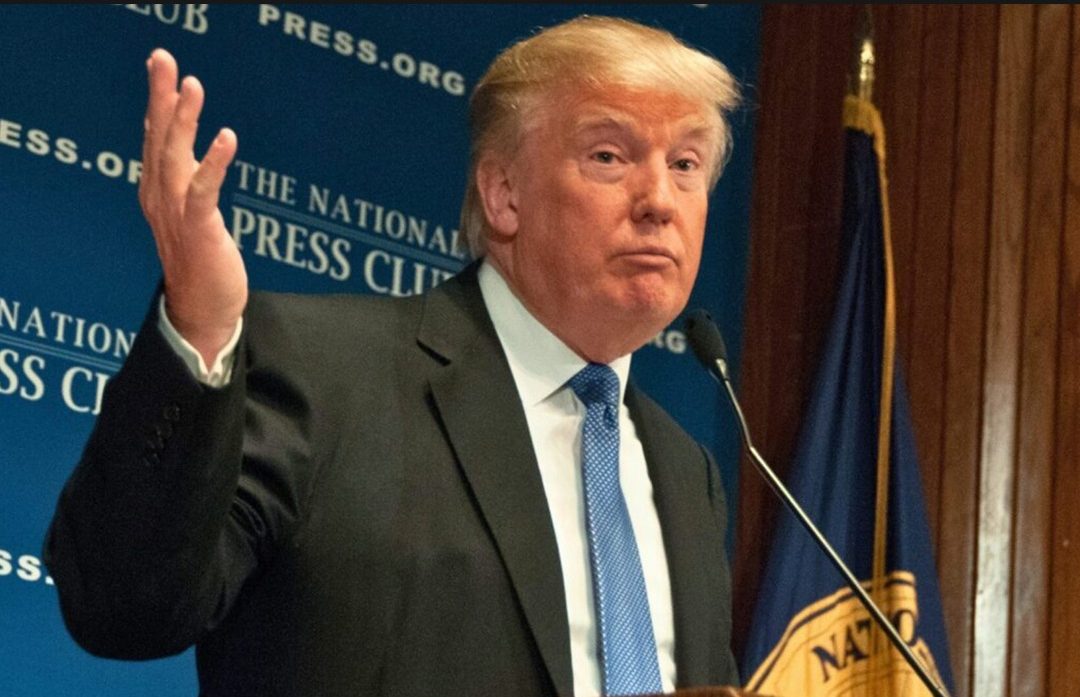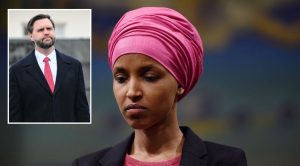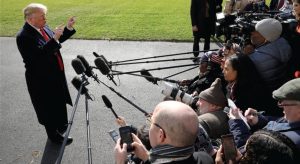NOTE:VIDEO AT THE END OF ARTICLE
President Donald Trump pushed back sharply this week after a resurfaced phrase among Wall Street analysts and media outlets challenged the consistency of his trade policy. The term, “TACO” — short for “Trump Always Chickens Out” — was coined by Financial Times columnist Robert Armstrong and has recently gained traction among financial commentators and market watchers.
The controversy began during a press briefing when CNBC reporter Megan Cassella asked Trump for his response to the label. Visibly irritated, Trump called it a “nasty question,” initially mishearing the term before launching into a defense of his record on tariffs and international trade negotiations.
“I’ve never heard that—you mean because I reduced China from 145 percent that I set, down to 100 and then down to another number?” Trump replied, referencing past tariffs imposed on Chinese imports. “It’s called negotiation. You set a number… I go down a little bit.”
Trump insisted that his approach was a strategic one designed to pressure foreign governments into fairer trade deals. He pointed to a 50 percent tariff proposal on European goods that led to swift outreach from the European Union. “They called up and they said, ‘Please, let’s meet right now.’ And I said, ‘Okay, I’ll give you till June 9.’”
Ultimately, according to Trump, those talks led to agreements that would not have happened without a hardline opening stance. “You call that chickening out?” he asked rhetorically. “We have $14 trillion now invested, committed to investing.”
The Origins of the ‘TACO’ Label
The “TACO” acronym emerged from a pattern noted by analysts: Trump often makes bold tariff threats, leading to temporary market dips, followed by softer policy outcomes or delays that cause rebounds. Critics suggest this dynamic has created a predictable cycle of volatility followed by retreat.
Financial journalist Robert Armstrong explained the theory in a recent column, stating that markets now price in the likelihood that Trump’s harshest trade threats will not materialize. “This is the TACO theory: Trump Always Chickens Out,” Armstrong wrote.
Market reactions have in some cases supported that claim. After Trump proposed a 50 percent tariff on EU imports last Friday, the S&P 500 dropped by 0.67 percent. Yet after a weekend call with European Commission President Ursula von der Leyen, Trump paused the move. Markets responded favorably on Tuesday, with the Dow Jones Industrial Average surging over 700 points.
A similar pattern occurred earlier in April when Trump introduced the so-called “Liberation Day” tariffs, which were delayed by 90 days amid investor unease. These developments have prompted financial circles to use the term “TACO trade” as shorthand for betting on Trump softening initial trade positions.
Public Reaction and Political Theater
As the term spread beyond economic analysis, it began to attract commentary from political pundits and late-night humorists. MSNBC’s Lawrence O’Donnell featured a segment highlighting the acronym, while online parody accounts circulated memes showing Trump in a sombrero alongside a chicken graphic.
Some critics have linked the renewed discussion to the infamous inflatable chicken balloon that appeared near the White House in 2017 — a visual gag that has taken on new relevance amid renewed scrutiny of Trump’s trade record.
University of Michigan economist Justin Wolfers joined in the humor, tweeting that Trump’s latest tariff proposal “nearly lasted one entire long weekend.”
Despite the ridicule, Trump and his supporters remain steadfast in their view that the administration’s approach is yielding results. “They haven’t treated our country properly,” Trump posted on Truth Social. “They banded together to take advantage of us.”
Trump’s defenders argue that pulling back on tariffs after achieving concessions isn’t a sign of weakness but evidence of effective deal-making. “This is how negotiations work,” one senior economic adviser noted. “You set tough conditions and adjust when your terms are met.”
Market Strategy or Mixed Messaging?
Financial experts are divided on whether the “TACO” dynamic represents a failure of consistency or a deliberate tactic. Some say it reflects a pragmatic flexibility that allows room for diplomatic resolution. Others worry that unpredictability in trade messaging causes unnecessary market volatility and undermines confidence in long-term policy planning.
“This kind of inconsistency can be challenging for investors trying to assess risks,” said Julia Tanner, an international trade analyst. “But it’s also true that aggressive opening bids are common in negotiations.”
Indeed, negotiation experts often refer to the concept of “anchoring,” where a party opens with an extreme offer to shape the range of outcomes. Trump’s defenders argue that his approach mirrors this technique and that results, not rhetoric, should be the measure of success.
A Term That Might Stick
Whether “TACO” will become a lasting part of political and economic vocabulary remains to be seen. But the phrase has clearly struck a nerve, both among those who support Trump’s trade agenda and those who question its execution.
While the label may be used to provoke or entertain, it reflects real questions about how policy announcements are communicated and followed through. In an age where financial markets respond in real-time to every headline, clarity and consistency carry significant weight.
Trump’s response to the criticism underscores his continued confidence in his strategy. “Six months ago, this country was stone cold, dead,” he said during the press event. “Now, we’re the hottest economy in the world.”
Regardless of partisan interpretations, the broader conversation around “TACO” highlights the complex interplay between politics, media narratives, and economic forecasting. As the term continues to circulate, so too will debates about what it truly says about Trump’s leadership and the unpredictable nature of modern trade diplomacy.









